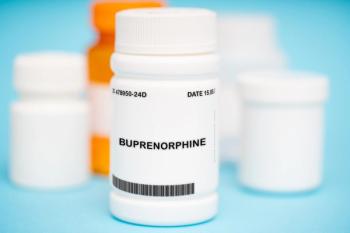
Pharmacy Associations Praise Bill Seeking to Reform DIR Fees
The legislation would reduce patients’ cost sharing, prevent plan and PBM clawbacks, enhance price transparency, and establish clear performance measures for pharmacies.
Several pharmacy associations have extended their praise for the introduction of a bill pursuing direct and indirect remuneration (DIR) fee reform and lowering drug costs for Medicare patients.
The Pharmacy DIR Reform to Reduce Senior Drug Costs Act was introduced by a bipartisan group of lawmakers in the US House and Senate, including Sen. Jon Tester (D-MT), Sen. Shelley Moore Capito (R-WV), Sen. Sherrod Brown (D-OH) and Sen. James Lankford (R-OK), as well as Rep. Peter Welch (D-VT), Rep. Morgan Griffith (R-VA), Rep. Buddy Carter (R-GA), Rep. Vicente Gonzalez (D-TX), Rep. Diana Harshbarger (R-TN), Rep. Abigail Spanberger (D-VA), Rep. John Rose (R-TN), and Rep. Raja Krishnamoorthi (D-IL).
Related:
“DIR fees are exerting unnecessary and devastating pressures on patients, on pharmacies, and on communities – particularly the most vulnerable and the underserved. We welcome the introduction of the Pharmacy DIR Reform to Reduce Senior Drug Costs Act, and we urge its passage this year,” the associations said in a group statement.
Among the supporting cohorts were the National Community Pharmacists Association (NCPA), the National Association of Chain Drug Stores (NACDS), the National Association of Specialty Pharmacy (NASP), the American Pharmacists Association (APhA), The Food Industry Association (FMI), the National Grocers Association (NGA), the National Alliance of State Pharmacy Associations (NASPA), and the American Society of Consultant Pharmacists (ASCP).
According to the NCPA statement, DIR fees unravel the viability of pharmacies while also inflating out-of-pocket prescription drug costs for Medicare patients. And DIR fees have been increasing over the last few years. NCPA asserted that DIR fees charged to pharmacies have ballooned from $229 million in 2013 to approximately $9.1 billion in 2019, according to a 2020 Drug Channels report.
Although the Centers for Medicare & Medicaid Services (CMS) have argued that the increase in DIR fees is due to pharmacy performance assessments, NCPA pointed to the fact that the assessments are “often arbitrary, based on the drugs the pharmacy dispenses and manages.”
Snowballing drug costs can have serious consequences on the health care system overall, such as diminished medication adherence, which can result in worse outcomes in patients who may need more expensive treatments later – all of which could have been avoided with a more deliberate approach and transparent system that works to the benefit of the pharmacy and the patient.
“This pivotal legislation seeks to reduce patients’ cost-sharing, prevent plans and pharmacy benefit managers (PBMs) from clawing back fees from pharmacies, enhance price transparency, and establish consistent pharmacy performance measures that foster quality care and that enhance the viability and predictability of pharmacy operations,” the statement said.
Reference
- Pharmacy Coalition Praises Legislation to Relieve Patients and Pharmacies from Pharmacy DIR Fees. News Release. NCPA; May 27, 2021. Accessed June 2, 2021.
https://ncpa.org/newsroom/news-releases/2021/05/27/pharmacy-coalition-praises-legislation-relieve-patients-and .
Newsletter
Pharmacy practice is always changing. Stay ahead of the curve with the Drug Topics newsletter and get the latest drug information, industry trends, and patient care tips.























